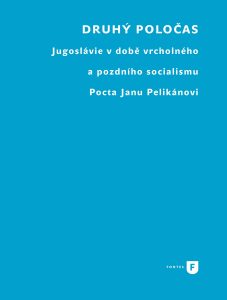
Milan Sovilj, Ondřej Vojtěchovský, Boris Mosković (eds.)
In recent years, the period of late socialism has become a primary focus in the historiography of the countries of the former Yugoslavia. Historians are interested in various aspects of the “second half” of the Titoist era, in which one can find both the roots of the later dissolution of the socialist federation and the developmental tendencies that made this state seem promising in the global context of its time. This collective monograph presents studies that highlight the thematic scope of research on socialist Yugoslavia. The individual contributions focus on the political, national, cultural, religious, and other aspects of the development of this state during the last quarter-century of its existence. The aim of this book is to outline current trends in the historiography of late socialism in the states of the former Yugoslavia and to show the professional public possible thematic and interpretative inspiration for research on this period in Czechoslovakia. This book is published on the occasion of the significant life anniversary of Jan Pelikán, a leading expert on the history of Southeastern Europe and a long-time teacher at the Faculty of Arts in Prague. The authors of the studies, historians of the middle and younger generations mostly working in post-Yugoslav countries, acknowledge Jan Pelikán as their teacher, whose work influenced their own research, who personally assisted them in their professional careers, or with whom they had the opportunity to collaborate directly.
